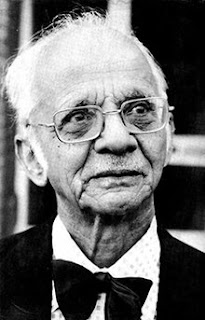Nirad C Chaudhuri at the opening of the chapter says that he did now not give a good deal of interest to the economic stipulations and issues of England due to the fact he was no longer in a position to recognize them. He is now not only ignorant of the challenge but even contemptuous of it. But at the same time, he stresses the truth that economics as a problem can't be prevented because it has its position in day-to-day human life and plays an important position in deciding the improvement of a country. He points out that he will talk about the Englishman’s relations with money from a moral standpoint.
About the religious practices at home, he has this to say: ‘‘Our religiosity covers every factor of money-making, including the dishonest and violent. There were no more dedicated worshippers of the Goddess Kali than the Thugs.” And in contrast “Christianity does not seem to have been directly involved in financial transactions, and so far, as I have read the Anglican liturgy I do not find in it any reference to money-making although there are prayers for protection against natural calamities.”
He also asserts that in his society money-making is an open
conspiracy, if it is a conspiracy at all. We do not, however, regard it as
such. In his eyes, it is an occupation that can be avowed with pride by every
honest and honorable man. Indeed, as long as we remain in the world we are
expected to put money above everything else.
Chaudhuri failed to see in the Englishman’s mindset to money the sordidness he finds amongst Indians. According to him, it is unthinkable to find in India the smoothness with which English humans put through their economic transactions. They pay their dues immediately and regularly, very readily part with money and without a second’s thought, trust individuals in money matters. All this offers a strong contrast to our society in which Chaudhuri says, the willingness to pay decreases as the ability to pay increases. Chaudhuri used to be exceedingly impressed by the industrial honesty of the English people. They comply with the principle that the love of money, in order to be enjoyed, needs to be restricted. Moreover, the Englishman believes in dwelling in style. He is no longer involved in hoarding money like the Indian.
The author tells
us that spending is the positive urge of the English people. For them spending
is ideal and frugality is the practical correlative of that ideal. But for Indians,
hoarding is a pleasure as well a virtue and spending, a strict duty but
normally a pain. The English always expected to live in style and they were careless
about money.
What excites him
is the fact that the banks and shops are so lenient and honest in cash matters.
Commercial honesty in England amazes him. He calls it a virtue of the highest
order. But English people refrain from all types of ‘shop-talk. But in India
``money-making is an open conspiracy.” In a lighter vein, Nirad Chaudhuri
remarks that money-making is as significant as love-making in the West.
English society
deems it very undignified to openly discuss monetary problems and strategies of
acquisition, a very unusual habit in humans who are described universally as
shopkeepers and capitalistic. But this displays certain negative elements of
the English character. The financial world is truly divided into two: the party
of spenders and the party of savers. The difference is between the misers and
the spendthrifts. But this is the case from the point of the income of view- “...love
for cash in order to be enjoyed need to be restricted”. The scene is one-of-a-kind when it comes to
spending- “On this side, there was as a whole lot assertiveness as there was
once secrecy on the other ''. Nirad Chaudhuri perceives spending to be the
fantastic urge of the English people and saving as a corrective measure. He
offers an insight into the psyche of Indians and the English in relation to
money. For the Indians, hoarding is a pleasure. Unlike the English, we can't spend
money in a planned and deliberate manner. Money is synonymous with temptation,
passion, and panic.






No comments:
Post a Comment